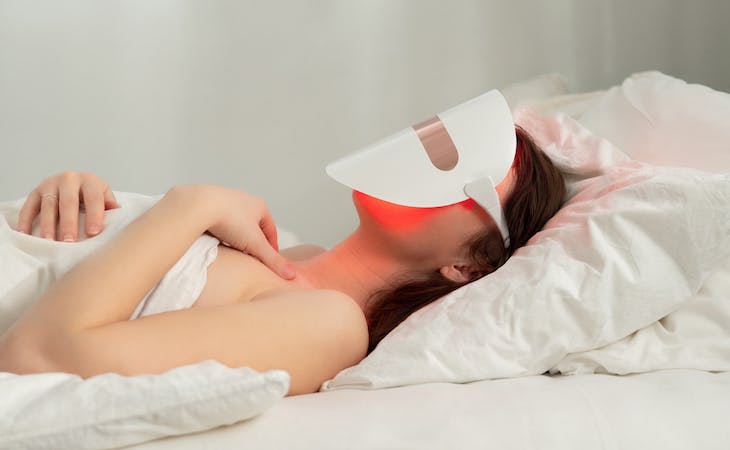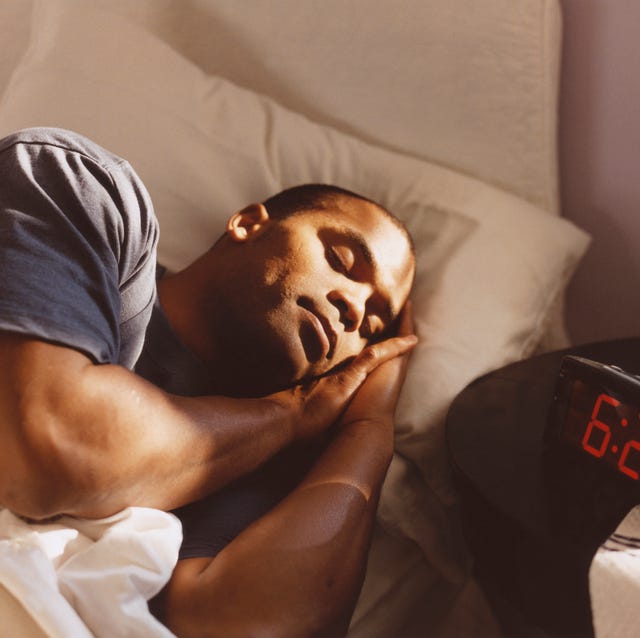Sleep Improvement Therapy - Improve Your Sleep Top Quality
Sleep Improvement Therapy - Improve Your Sleep Top Quality
Blog Article
Effective Treatment Solutions for Handling Sleep Disorders and Enhancing Restful Rest
In the world of health care, the monitoring of sleep problems and the quest for peaceful rest are essential parts of general well-being. As we navigate the complex landscape of rest disorders and look for to boost our sleep experience, a deeper understanding of these therapy solutions may hold the secret to opening an extra rejuvenating and satisfying corrective trip.
Cognitive Behavioral Treatment for Sleeping Disorders (CBT-I)
Cognitive Behavior Modification for Insomnia (CBT-I) is a structured, evidence-based treatment method that concentrates on dealing with the hidden elements adding to rest disruptions. This sort of treatment intends to change behaviors and thoughts that exacerbate sleep problems, eventually advertising healthy sleep patterns. CBT-I usually includes a number of key parts, including cognitive treatment, sleep restriction, stimulus control, and sleep health education.
Cognitive therapy helps individuals recognize and transform adverse idea patterns and ideas concerning rest that may be preventing their capacity to drop or remain asleep. Sleep limitation entails restricting the amount of time invested in bed to match the person's actual sleep period, thus boosting sleep effectiveness (insomnia specialist). Stimulus control strategies help develop a strong organization between the bed and rest by motivating individuals to go to bed only when drowsy and to stay clear of taking part in stimulating activities in bed
Additionally, sleep health education and learning concentrates on developing healthy sleep practices, such as preserving a consistent sleep timetable, developing a relaxing bedtime regimen, and optimizing the rest atmosphere. By dealing with these factors thoroughly, CBT-I provides a reliable non-pharmacological intervention for handling sleeplessness and improving general sleep quality.
Sleep Health Practices
Having actually developed the structure of cognitive restructuring and behavior alterations in resolving sleeplessness through Cognitive Behavior modification for Sleeplessness (CBT-I), the focus now moves towards discovering vital Sleep Health Practices for maintaining ideal rest high quality and overall health.
Sleep hygiene techniques encompass a series of behaviors and ecological factors that can dramatically impact one's capability to go to sleep and stay asleep throughout the evening. Regular sleep and wake times, developing a relaxing going to bed routine, and enhancing the sleep atmosphere by maintaining it dark, quiet, and cool are crucial parts of excellent sleep hygiene. Restricting exposure to screens before bedtime, preventing energizers like high levels of caffeine close to going to bed, and taking part in regular physical activity during the day can additionally advertise better sleep top quality.
Furthermore, exercising leisure methods such as deep breathing workouts or meditation prior to bed can assist calm the mind and prepare the body for rest. By including these rest hygiene practices into one's everyday routine, individuals can develop a healthy sleep pattern that sustains relaxed sleep and general wellness.
Relaxation Strategies and Mindfulness
Applying relaxation techniques and mindfulness practices can play a crucial duty in fostering a sense of calm and advertising high quality rest. cognitive behavioral therapy for insomnia (CBT-I). These techniques aim to peaceful the mind, minimize tension, and create an ideal setting for peaceful sleep. One commonly practiced technique is deep breathing workouts, where individuals concentrate on sluggish, deep breaths to relax the mind and body. Progressive muscle leisure entails tensing and afterwards launching each muscular tissue group, advertising physical leisure. Additionally, led imagery can assist transport people to a serene area in their minds, aiding in tension article reduction and enhancing rest quality.
By incorporating these methods into a bedtime routine, individuals can signal to their bodies that it is time Home Page to relax and prepare for rest. Generally, incorporating leisure strategies and mindfulness techniques can dramatically add to managing sleep disorders and enhancing total rest high quality.

Medication Options for Sleep Disorders
After exploring leisure techniques and mindfulness practices as non-pharmacological treatments for boosting sleep high quality, it is necessary to think about medicine options for individuals with sleep conditions. In cases where lifestyle modifications and therapy do not give adequate relief, medication can be a useful tool in handling rest disruptions.
Generally suggested medicines for rest problems include benzodiazepines, non-benzodiazepine hypnotics, antidepressants, and melatonin receptor agonists. Antidepressants, such as trazodone, can be beneficial for people with co-occurring clinical depression and sleep disturbances - sleep deprivation help.
It is vital for people to consult with a doctor to identify one of the most proper medication choice based upon their particular rest condition and medical history.
Light Treatment for Circadian Rhythm Law
Light treatment, likewise referred to as photo-therapy, is a non-invasive treatment approach made use of to regulate circadian rhythms and improve sleep-wake cycles. This treatment entails exposure to brilliant light that mimics all-natural sunlight, which aids to reset the body's body clock. By revealing people to specific wavelengths of light, usually in the morning or night relying on the desired result, light treatment can properly change the body clock to promote wakefulness throughout the day and enhance restful sleep at evening.
Research has actually revealed that light wikipedia reference treatment can be particularly useful for individuals with body clock disorders, such as delayed rest phase disorder or jet lag. It can also be handy for those experiencing seasonal depression (SAD), a kind of clinical depression that normally occurs during the wintertime months when all-natural light exposure is decreased. Light treatment is normally well-tolerated and can be used in conjunction with various other therapy techniques for sleep disorders to optimize outcomes and boost general sleep quality.
Final Thought
Finally, reliable treatment options for managing sleep conditions and improving relaxing rest consist of Cognitive Behavioral Treatment for Sleeping Disorders (CBT-I), sleep health methods, relaxation strategies and mindfulness, medication options, and light treatment for body clock policy. These strategies can help individuals improve their rest quality and overall well-being. It is very important to talk to a healthcare company to identify the most ideal strategy for addressing rest concerns.
As we browse the complex landscape of rest problems and seek to enhance our sleep experience, a much deeper understanding of these treatment services may hold the key to opening a more rejuvenating and satisfying corrective trip.
Sleep restriction involves limiting the quantity of time spent in bed to match the person's real rest duration, thereby raising rest performance. Constant rest and wake times, producing a relaxing going to bed routine, and maximizing the sleep environment by maintaining it dark, peaceful, and cool are vital components of excellent sleep health. Light therapy is usually well-tolerated and can be utilized in combination with various other treatment approaches for sleep conditions to enhance outcomes and enhance overall sleep quality.

Report this page